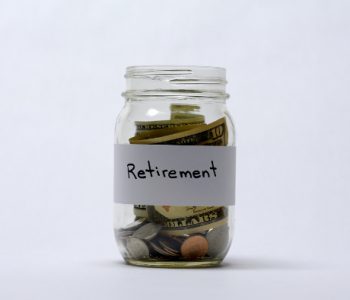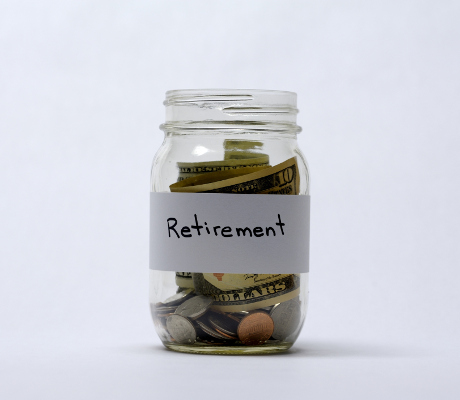5 Best Vanguard Retirement Funds for 2017

Best Vanguard Funds for Retirement
The objective of investing is to generate a regular stream of income and, more importantly, preserve capital. One way of achieving this is by buying individual stocks that pay out a dividend. However, stock picking isn’t for everyone. What other investing options are there when working towards your retirement?
The most successful investor of all time, Warren Buffett, has said that investors should put their money into index funds, believing they will benefit from this strategy over stock picking. It’s hard to disagree with someone with a track record of outperforming the S&P 500 Index.
Looking deeper into this strategy, it makes sense due to its many advantages. One method of using index funds is to own the best Vanguard funds for retirement via a dividend exchange-traded fund (ETF).
What Is a Dividend Exchange-Traded Fund (ETF)?
An exchange-traded fund is a product that would trade on the major trading exchanges, as a stock does. The big difference is that a portfolio of stocks is being owned rather than just one. Depending on the ETF, there could be 30, 50, or even hundreds of investments within one ETF portfolio. Most ETFs will follow a specific index or commodity to track or replicate.
By simply owning a dividend exchange-traded fund, income will be generated. The most traditional method sees a dividend paid out quarterly, satisfying the need for retirement income.
Advantages of Owning an Exchange-Traded Fund for Your Retirement
There are many benefits that come with investing in a dividend ETF.
For starters, simply purchasing one or more ETFs will add to the diversification of your investment portfolio.
For instance, let’s say you are looking to invest in an ETF that replicates the Dow Jones Industrial Index. This index is comprised of 30 blue-chip companies from many different industries. So you can simply buy one ETF that would hold all 30 of these stocks, rather than purchasing them all individually.
Also note that if you happen to have a small amount of capital, achieving diversification with stocks may be unattainable. For example, your capital could limit the number of stocks you own, forcing you to have a larger percentage of capital in a given investment. Therefore, the portfolio returns will be heavily reliant on the performance on these large holdings, which is quite risky. However, this risk could be removed simply by purchasing an ETF.
Another immediate benefit would be the amount of time that would be saved by purchasing an ETF, including that spent on research and ordering. Your bottom line would benefit as well, since only one commission fee would be incurred.
A professional management team will look after the investments within the ETF. Their duty will be to ensure that the ETF replicates or tracks the underlying index, according to the investment objective. There will be cases where an investment will be removed if it does not meet the conditions, and other cases where one is added if it has potential. This is great to have in place, since the ETF managers spend a lot of their time researching companies and follow the markets on a daily basis.
However, these teams require a fee, which is known as the management expense ratio (MER). This may sour you on the idea, but don’t let it; the amount is very small compared to other products such as mutual funds and hedge funds.
In the case of an exchange-traded fund, the annual MER fee could be as low as 0.1%. With all the advantages of an ETF, it is a very small amount to pay to achieve your retirement goals.
With mutual funds, there are times a fund could charge a MER fee as high as two percent. And when it comes to hedge funds, the funds and risk level tend to be higher than both mutual funds and ETFs.
In other words, an ETF means that more money remains in your investment portfolio. This may not sound like a big deal if an investment was made for just a year, but after holding a fund for 10 or 20 years, there could be an impact on your overall retirement lifestyle.
What Types of ETFs to Avoid in Retirement
There are ETFs that give investors access to very unique investment products. An example of one of these investments is leverage ETFs, which may offer an investment return of two or three times that of the index. For instance, if you wanted to invest in the S&P 500 and the index moved one-percent point in a given day, then the ETF return would be double or triple on that day based on the fund. This may sound appealing, but if you were to get the direction wrong then the investment would lose two or three times as much well.
I would recommend staying away from these type of ETFs, because the preservation of capital could easily erode over time; in fact, these investment products rarely work out over the long term.
Another type of exchange-traded fund would be those that use options and derivatives to attempt to generate a higher return. This would potentially mean a higher return, but it will also increase the overall risk in your portfolio due to the volatility in the price movement of this type of ETF—the fund may be borrowing money against the assets. These type of ETFs may not be suitable if you’re looking for income and capital preservation for your retirement.
Vanguard Funds List 2017
Below is a list of the best vanguard funds for retirees. Everything that is mentioned above was considered when researching these ETFs.
| ETF Name | ETF Symbol | Price | Dividend Yield | Management Expense Ratio (MER) |
| Vanguard High Dividend Yield ETF | VYM | $78.12 | 2.77% | 0.08% |
| Vanguard Total International Stock ETF | VXUS | $49.76 | 2.74% | 0.11% |
| Vanguard REIT Index Fund | VNQ | $83.17 | 4.39% | 0.12% |
| Vanguard Dividend Appreciation ETF | VIG | $90.10 | 2.04% | 0.09% |
| Vanguard Lg Term Govt Bd ETF | VGLT | $74.75 | 2.66% | 0.07% |
Best Vanguard Index Funds for 2017
1. Vanguard High Dividend Yield ETF
Vanguard High Dividend Yield ETF (NYSEARCA:VYM) is designed to track the performance of the FTSE High Dividend Yield Index. This index consists of common stocks that pay a dividend that is typically higher than the average yield of the market. The team managing the ETF attempts to target the index by investing all or most of the assets on a weighted basis.
Owning this ETF carries a MER fee of 0.08%. The dividend yield is 2.77%, which would cover the MER fee while adding cash to your pockets. The quarterly dividend has been steady and grown over time.
2. Vanguard Total International Stock ETF
There are times when overseas markets will outperform the domestic ones. Investing in overseas markets could feel overwhelming at first because research is required, not to mention risks tied to the exchange rate. One way to get access to international markets without the headache is Vanguard Total International Stock ETF (NASDAQ:VXUS).
VXUS tracks the performance of the FTSE Global All Cap ex US Index, a float-adjusted market-capitalization-weighted index. It includes both developed and emerging markets, which excludes U.S. securities. There are approximately 5,800 stocks in the ETF, spread across over 45 countries.
All the businesses within the ETF are invested in large-cap companies. The top three sectors are in the financial services, industrials, and consumer cyclicals sectors.
3. Vanguard REIT Index Fund
The real estate sector is known to investors as a source of cash-flow-generating investments. But one negative with investing in the real estate sector is the time and effort required to manage the property. One way to avoid this is by investing in real estate investment trusts (REIT), which are real estate companies that pay out a large amount of their cash flow as a dividend. These companies also tend to have experienced management teams, which is a big advantage when decisions need to be made.
One way to get exposure to this sector is Vanguard REIT Index Fund (NYSEARCA:VNQ). VNQ seeks to track the performance of the MSCI US REIT Index. The holdings within the ETF are held in the same proportion as the index.
The ETF focuses on investing in mid-cap companies. Its top three holding being Simon Property Group Inc (NYSE:SPG), Public Storage (NYSE:PSA), and Prologis Inc (NYSE:PLD).
4. Vanguard Dividend Appreciation ETF
One of the best Vanguard funds for your retirement portfolio is Vanguard Dividend Appreciation ETF (NYSEEARCA:VIG). This ETF tracks the performance of the NASDAQ U.S. Dividend Achievers Select Index, an index of companies that have increased their dividend for a minimum of 10 years and continue to do so today. Many of these businesses also have predictable patterns of when the dividend will be increased, based on their dividend history, and all are large-cap companies.
The fund contains companies from nine different sectors and no single holding that represents more than five percent of the fund’s assets. The top three holdings for this ETF are Microsoft Corporation (NASDAQ:MSFT), Johnson & Johnson (NYSE:JNJ), and PepsiCo, Inc. (NYSE:PEP).
This is great within a retirement portfolio because as the companies within the ETF increase their dividend, so does the fund. This could help greatly when looking at your income needs and the preservation of the capital in the investment.
5. Vanguard Lg Term Govt Bd ETF
One way of earning an income for retirement besides using dividend ETFs is by owning debt products. This falls under investing in bonds and is a loan given to an entity. At the time the bond is issued, there is a maturity date in regards to when the load will be paid back. Also detailed are the percentage and dollar amounts of payment to the holder of the debt.
One Vanguard fund to watch now would be Vanguard Lg Term Govt Bd ETF (NASDAQ:VGLT). This tracks the performance of the Bloomberg Barclays U.S. Long Government Float Adjusted Index, an index that includes fixed income securities that are issued by the U.S. Treasury and the U.S. government.
Since this ETF does not hold stocks, the volatility will not have a strong correlation to the markets. And U.S. government and Treasury bonds are considered to be some of the safest Vanguard funds, since there is a high probability of getting the capital back once the maturity date comes around.











